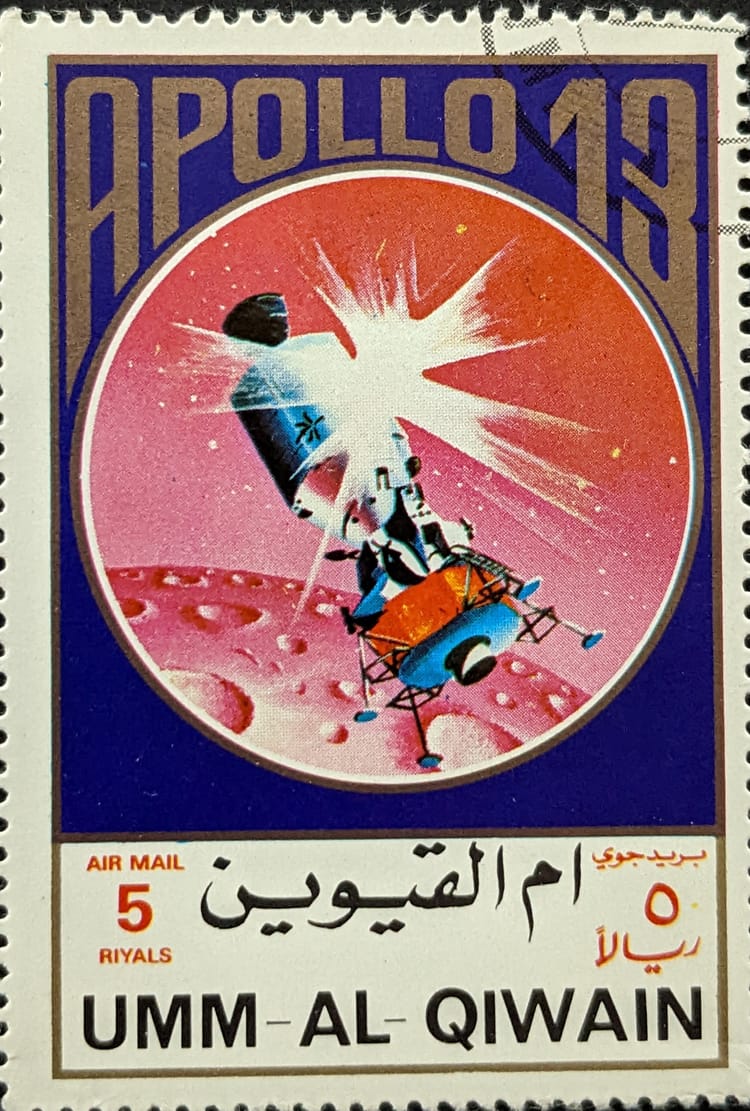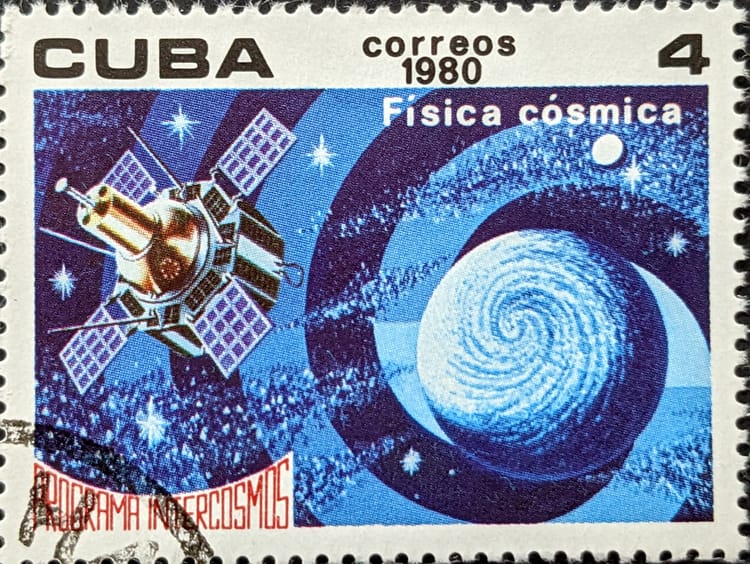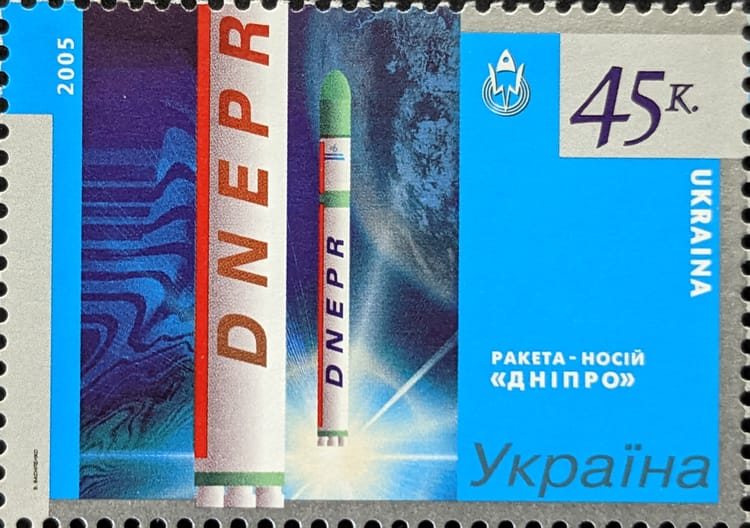Bluster: Thoughts on Rogozin’s Response to SpaceX/NASA

Every so often, a day comes along when there is an overwhelming number of space industry topics someone like me can cover. Today, 10 June, appears to be one of those days. This is a blessing and a curse.
At times, it feels like the barrel of fish is way too full...on to the analysis (which is longer than normal).
A “Target-Rich” Environment?
By now, it should be obvious to everyone that Roscosmos’ chief, Dmitry Rogozin, is very irritated by SpaceX in particular, and everyone else in general. Russia’s space agency chief just released a new, official translation of his feelings regarding SpaceX’s latest success, and all the slights he thinks he and his nation’s space program have been experiencing at the hands of U.S. diplomats, Elon Musk, bloggers, Elon Musk, analysts, Elon Musk, etc.
Some of the complaints he makes are fair. There is a high amount of--puffery--surrounding certain space industry companies. There is a tendency in the industry to elevate particular companies and individuals--and some might have even earned their positions. No one is surprised by his lament of a lack of gratitude to Russia for any of its space services (even if the U.S. is paying for them) from the current U.S. administration.
In “SpaceX’s Cyclical Problem,” I presented a few reasons why the likes of Rogozin keep pushing the idea that ...SpaceX is dumping its rocket services for customers because the U.S. government is paying higher prices for the company’s launch services.
A summary of those reasons from that analysis:
- The U.S. government tends to overpay for launch services in attempts to buy down risk/gain system reliability
- SpaceX’s transparency with its pricing allows others to question its legitimacy
- The U.S. government’s history of acquisitions practices created opaque launch pricing before SpaceX
In this latest of Rogozin’s tomes, he pushes the idea that SpaceX somehow got the land for its launches gratis from NASA and the USAF, which is definitely not true. Just talk to either organizations’ accountants. But should we be surprised by the apparent failure of Rogozin to grasp basic concepts of capitalism, say...rent…, when the nation he comes from and the government he represents has a history of fumbling with concepts concerning wealth-generation and private property--badly.
No Money No Fly
To set the stage, it’s good to understand the circumstances likely pushing Rogozin to make these comments. He and Roscosmos are very obviously on the defensive. SpaceX’s successful launch of astronauts was the latest in a long line of bad news for Roscosmos. Roscosmos’ service to fly American astronauts to the ISS is another source of funding for the Russian space agency that will disappear soon.
OneWeb’s bankruptcy filing was surely the event with the largest impact on Roscosmos’ bottom-line. OneWeb’s chosen launch provider, Arianespace, no longer has 21 OneWeb launches on its manifest. Arianespace was working with Russia’s Starsem, the company providing the Soyuz rockets to launch the OneWeb satellites. In “Space Engineers & OneWeb’s Launch Costs,” the OneWeb/Arianespace contract was noted to be valued at $1.1 billion dollars, coming to about $52 million per launch. Whatever share of the $1.1 billion Starsem was receiving, it’s probably very painful to Roscosmos that that share is no longer there.
Rogozin pointed out many alternative facts. One of them, the reason why Roscosmos cut back on the number of its own cosmonauts launched to the ISS is not quite accurate. According to Rogozin’s latest narrative, Roscosmos did this to accommodate NASA’s astronauts--and it was like a priceless work of art:
“But we didn't fail neither them nor ourselves. Moreover, finding ourselves face to face with space, we fulfilled our liabilities to our partners from the US, Canada, Europe and Japan — in full and with high quality. We took our partners who had no spacecraft at hand to the station, having to cut our crews thus cutting our flight and experiment program aboard the Russian ISS segment.”“Indeed, through all the nine years NASA and Boeing paid for all the preparations of their specialists in Star City and Baikonur, as well as for that lucky roundtrip space ticket. However, we earned this honest money, while it will not equal the colossal moral load the Russian crewed cosmonautics had on its shoulders, staying alone for the humanity to support the International Space Station operability and deliver the crews there. In the same manner the paintings by Leonardo da Vinci, Michelangelo, and Titian are priceless being unique and are common heritage, the same is true about the chance given to the Americans by Roscosmos to retain an opportunity to deliver their astronauts to the space station — it is priceless.”
Cultural references and attempts at capturing the moral high-ground notwithstanding, a 2016 article (some translation required) points to the fact that Roscosmos was looking for ways to cut the budget. One of the simplest ways to do that and actually make money on that cut is to not launch as many cosmonauts to the ISS. Instead, Roscosmos can receive payment from NASA to launch U.S. astronauts. It almost sounds capitalistic. From Isvestia:
“The constant reduction of the Federal Space Program naturally leads to the search for articles to reduce costs,” said Igor Marinin. - The rest of the programs have nowhere to cut, because everything is minimized anyway. As for the manned program, now we are carrying foreigners — there are always three of them in orbit, and they all fly there on our Soyuz spacecraft. For this, Roscosmos will receive good money ($ 55– $ 60 million for the delivery of one astronaut. - Izvestia).
In fact, the number of crew launches for the ISS using the Soyuz launch system never exceeded four per year. As shown in the chart below, crewed Soyuz to ISS missions hit four missions annually starting in 2009 and came back down to three missions per year starting in 2018. The steady launch cadence from 2009 through 2017 indicates that perhaps Russia didn’t feel the need to launch more cosmonauts.

Data for graph from Gunter's Space Page and The Space Report Online
While the graph shows Rogozin is truthful about Roscosmos making room for American astronauts at its cosmonauts’ expense, he’s not being honest about why. Priceless indeed!
Other Russian achievements, such as its Vostochny Cosmodrome, are harder to swallow as examples of Russian excellence in space. Vostochny in particular has been one of the nation's poster-children as a system riddled with corruption. Plans for new rocket systems, including the Angara, have either been canceled or delayed for timespans that make the U.S. progress with its Space Launch System look, well, progressive.
It’s always tremendously easy to poke fun at and holes in these articles. The sheer amount of bluster within Rogozin’s post would have powered the British Navy at its peak. But, there are interesting tidbits within his post that are worth examining.
Interesting and Ominous Tidbits
Did you know Roscosmos employs 180,000 people? If you did, congratulations!! Rogozin brings up this figure while he for some reason is comparing the agency’s workforce with SpaceX’s workforce. Comparing that number to another large space agency’s workforce, NASA’s, demonstrates a workforce imbalance. According to the latest Space Foundation research, NASA’s workforce hovers around 17,000 people.
Things come more into balance when comparing the overall estimated space workforce numbers of the U.S., which the Space Foundation noted to be somewhere slightly above 170,000 people. Then understand that Russia has been busily moving independent businesses to a more centralized structure, which involves Roscosmos being in charge of them. This means, perhaps, that those 180,000 Russian citizens are probably the entire space workforce of that nation. Or maybe not everyone, yet.
At the same time in the same paragraph, Rogozin notes that the pandemic is making it pretty clear which parts of that 180,000 are necessary. He sounds like a great boss.
Continuing on, Rogozin noted plans for more industry consolidation.
“Previously, each rocket and space company was created as a self-sufficient entity, with almost no technological transfer in the industry. Merging the enterprises together inside the joint state corporation will enable such ‘technological fitness’. And we aren’t going to drag it out for years. Russia’s space industry will become fit and able to timely and flexibly address the modern economy and rival challenges.”“I will repeat myself — such a huge number of tasks should be solved in a very short period. But I am completely sure that we will succeed, as this success depends on the professionalism and motivation of the people responsible for the definite results — and not on the buying new machinery. And I do believe in these people. I do believe in those I am honored to work with. I do believe in our team capable of achieving major accomplishments of Russia in space.”
It appears Russia is not quite satisfied with how things have turned out with space industry consolidation so far, so it’s doubling down on the concept. Rogozin makes it sound like the nation wants to cripple more than its space industry--it will involve other industries in attempts to gain some sort of forced arrangement for idea/technology crossbreeding.
What’s interesting from Rogozin’s entire post is that it was authored in response, theoretically, to SpaceX’s commercial crew success and explaining the reasons for its success to its citizens. If Rogozin believes that SpaceX was successful because it received free resources and money from NASA (whether true or not), then that belief justifies Roscosmos’ consolidation actions (because that justifies Roscosmos giving resources to companies working under it). Even if Rogozin knows this to not be the case, there are probably a lot of Russian citizens too willing to believe in this narrative (as we’ve seen in other cases here in the U.S.).
This guess is bolstered by the fact that Rogozin mentions a lot of patriot-empowering history, as well as current Russian space industry activities. It seems that the post has a tone that is focused on its citizenry...but why post it in English? To get back at Elon and NASA? More likely, it’s to perhaps get U.S. politicians “concerned.” The mention of Boeing’s self-inflicted plight would bring several of them riding to the company’s rescue, possibly while doing everything they can to undercut SpaceX’s operations. But that’s just a guess, too.
The upshot of this is it will be interesting to see if Russia can finally implement its plans for building and launching new rockets. That it can finally manufacture space stations and spacecraft. Roscosmos has voiced similar ambitious plans during the past decade, with no follow-through. If it actually manages to follow-through this time, maybe the agency will have SpaceX to thank, instead of blame.




Comments ()